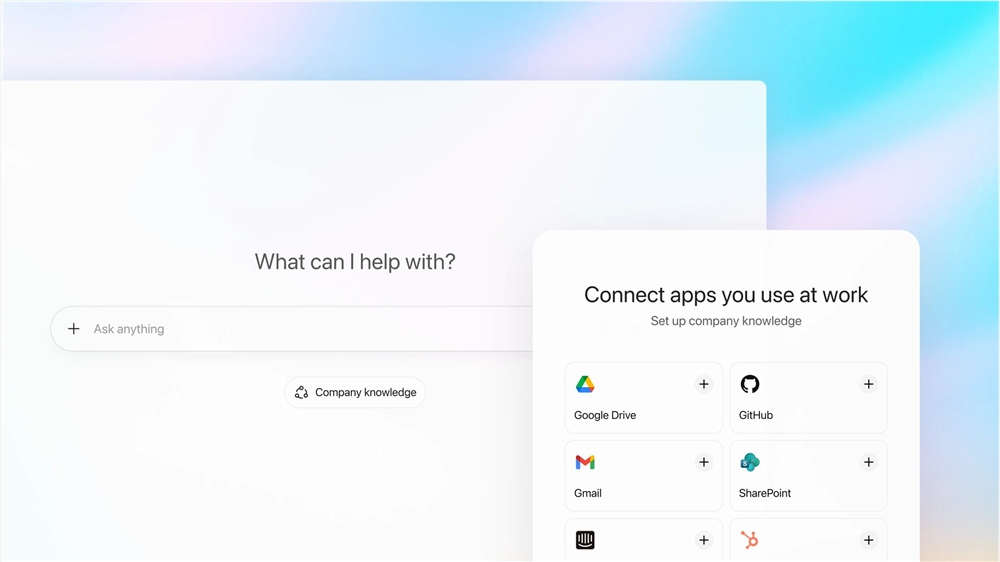When corporate data is scattered across Slack messages, Google Drive documents, Salesforce customer records, and GitHub code repositories, employees spend hours each day switching between different applications to find information—a "knowledge silo" dilemma that is now being broken by a powerful punch from OpenAI. On October 26, 2025, OpenAI officially launched the new feature "Company Knowledge" for Business, Enterprise, and Edu subscription users, marking ChatGPT's full evolution from a general conversation assistant into an enterprise-level intelligent hub.
The core breakthrough of this feature lies in its cross-platform data aggregation capability. Without manual uploading or repeated switching, ChatGPT now can directly access 12 major collaboration systems authorized by the company, including Slack, Google Drive, Gmail, Outlook, SharePoint, GitHub, HubSpot, Salesforce, Asana, Dropbox, and Box. Users simply need to ask a natural language question, such as "What are the main customer feedbacks after the mobile app launch?" and the AI will automatically span multiple data sources, integrating emails, chat records, support tickets, and project documents to generate accurate answers with clear structure and reference links.
The driving force behind this capability is the enhanced GPT-5 model optimized for multi-source retrieval. It not only handles vague queries but also identifies and reconciles conflicting information across different sources. For example, when asked "Have the company's goals for next year been determined?" the system will combine senior management discussions in Slack, draft versions in emails, and OKR progress in Asana, clearly indicating points of consensus and issues yet to be decided. Combined with the "search while thinking" mechanism and time filtering function, the error rate of facts has been reduced by 78%, significantly improving reliability in enterprise scenarios.

Safety remains the bottom line for enterprise deployment. Company Knowledge uses end-to-end encryption, supports SSO login, SCIM user synchronization, IP whitelisting, and complete API audit logs. Most importantly, all enterprise data is used solely for immediate query responses and is never used for model training, ensuring zero leakage of commercial secrets and intellectual property. Administrators can also enable connectors in phases based on role-based access control (RBAC), starting from core systems and gradually expanding to specialized tools.
In practical applications, this feature has shown transformative potential: generating summaries of cross-channel customer feedback before meetings, quickly sorting out engineering TODOs and potential risks before product launches, and even integrating historical contracts and supplier performance data for procurement decisions. Users need to manually activate this mode in a new conversation (web browsing and image generation will be temporarily disabled, but can be switched back at any time), achieving a "zero jump" knowledge retrieval experience.
In the competition with Microsoft Copilot and Google Duet AI, OpenAI has taken the lead by leveraging broader platform compatibility and deeper optimization of GPT-5. Analysts point out that AI is moving from "content generation" to "action execution," and seamless integration of enterprise data will become the core of the next stage of competition. OpenAI COO Brad Lightcap called it "the most impactful productivity upgrade to date."
For enterprises, this is not just a tool iteration, but a restructuring of work paradigms. Knowledge no longer lies dormant in islands, but becomes available on demand, driving decision-making. As AIbase said: In the AI era, knowledge is power—and OpenAI is giving every organization the key to it.
